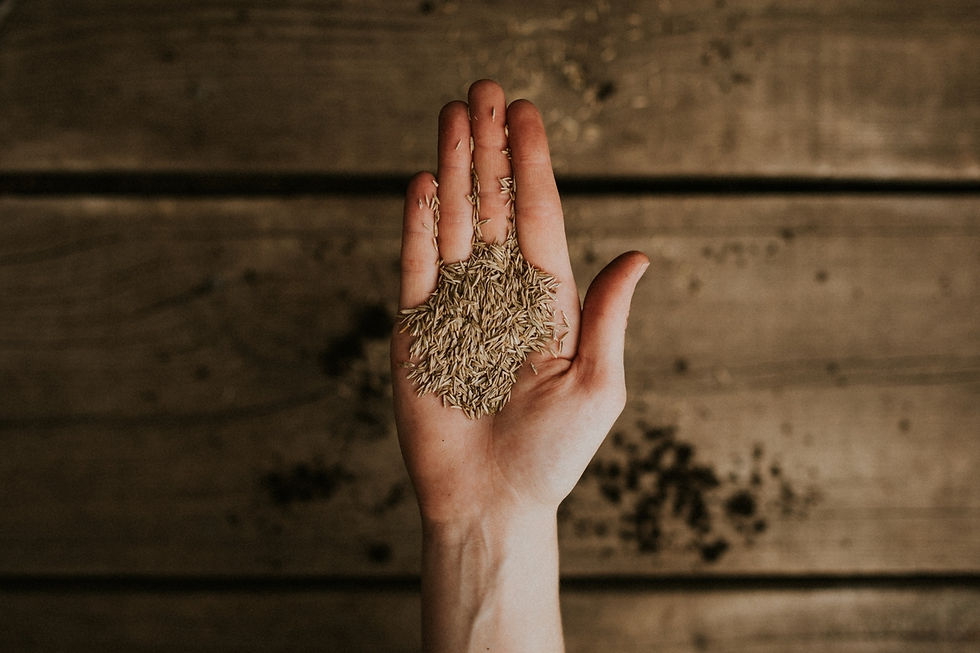Save the planet (with your own garden!)
- New World LA Agency
- Jun 28, 2023
- 2 min read

Are you ready to grow? There are a lot of benefits involved when leaning into a more sustainable lifestyle, from conserving water to being in charge of your food security, building sustainable gardens is a great way to provide for yourself and pass on regenerative skills to future generations.
Here are a few ways to minimize your environmental impact while promoting ecological balance.
Here are five ways to create a sustainable garden:
1. Conserve precious water:
- Install a rainwater harvesting system to collect and store rainwater for irrigation. This reduces reliance on potable water sources.
- Use mulch around plants to retain moisture, prevent weed growth, and reduce the need for frequent watering.
- Choose native plants adapted to the local climate and require less water once planted.
2. Grow Organically:
- Avoid synthetic fertilizers, pesticides, and herbicides that can harm beneficial insects, soil organisms, and water systems.
- Utilize compost, leaf litter, or organic matter to improve soil health, structure, and fertility.
- Implement natural pest control methods, such as companion planting, biological controls, and physical barriers.
3. Bio – Diversify! We love diversity for our gardens as much as we love it for our communities!
- Plant a diverse range of species to attract and support a variety of pollinators, birds, and beneficial insects.
- Incorporate native plants that provide food, shelter, and nesting for wildlife.
- Create habitats like birdhouses, bat boxes, and insect hotels to welcome biodiversity within your garden.
4. Build Sustainable Structures – making every inch of your garden earth friendly is possible.
- Opt for sustainable and recycled materials when constructing garden structures like raised beds, fences, or pathways.
- Use organic and biodegradable materials for garden mulch, such as straw, wood chips, or shredded leaves.
- Repurpose items like old containers or pallets for creative planters, reducing waste and promoting resourcefulness.
5. Composting and Waste Reduction:
- Compost kitchen scraps, yard waste, and plant trimmings to create nutrient-rich soil amendments instead of sending them to landfills.
- Practice "grass cycling" by leaving grass clippings on the lawn to decompose naturally and restore nutrients to the soil.
- Minimize waste by reusing or repurposing items, such as turning old pots into seedling starters or using biodegradable plant labels.
Remember, sustainability is an ongoing process, so adapt these practices to suit your specific garden and environmental conditions.




jutawanbet | protogel | lunatogel | nanastogel | togelon | situstoto | tvtoto | wdbos | latoto | fatcai99 | jutawanbet | protogel | lunatogel | nanastogel | togelon | tvtoto | wdbos | latoto | depobos | mancingduit | lapak99 | ligabndot
pascol4d
pascol4d
link bermain slot dan togel terbaik tahun 2025!
amavi 5d
amavi5d login
Best online platform gaming in the world
bydplay bydplay bydplay bydplay
kari4d kari4d